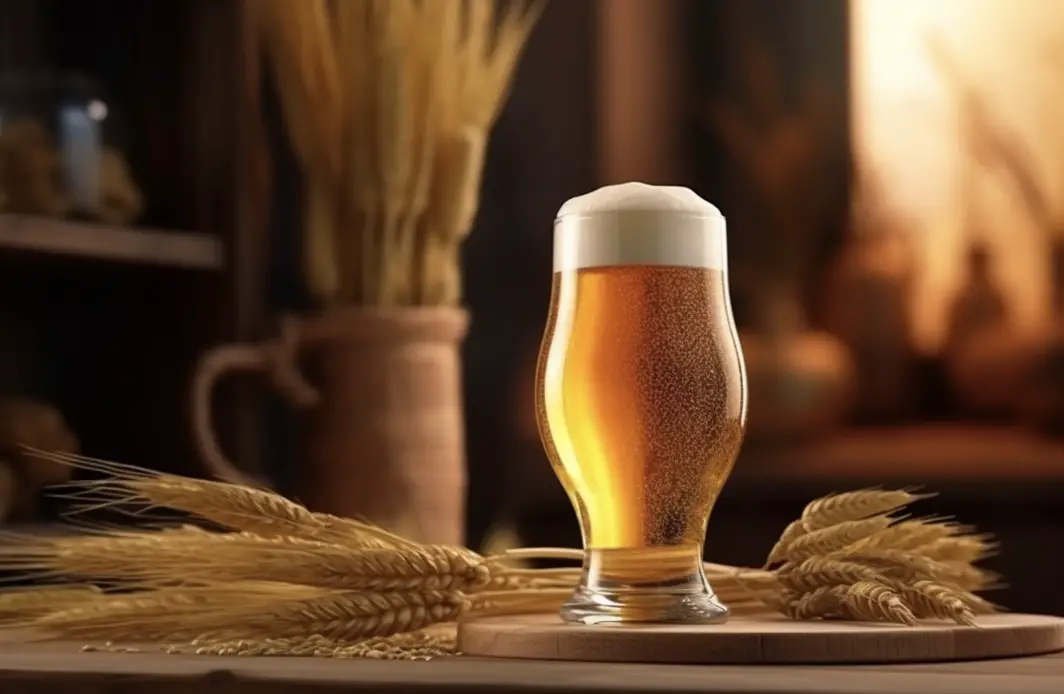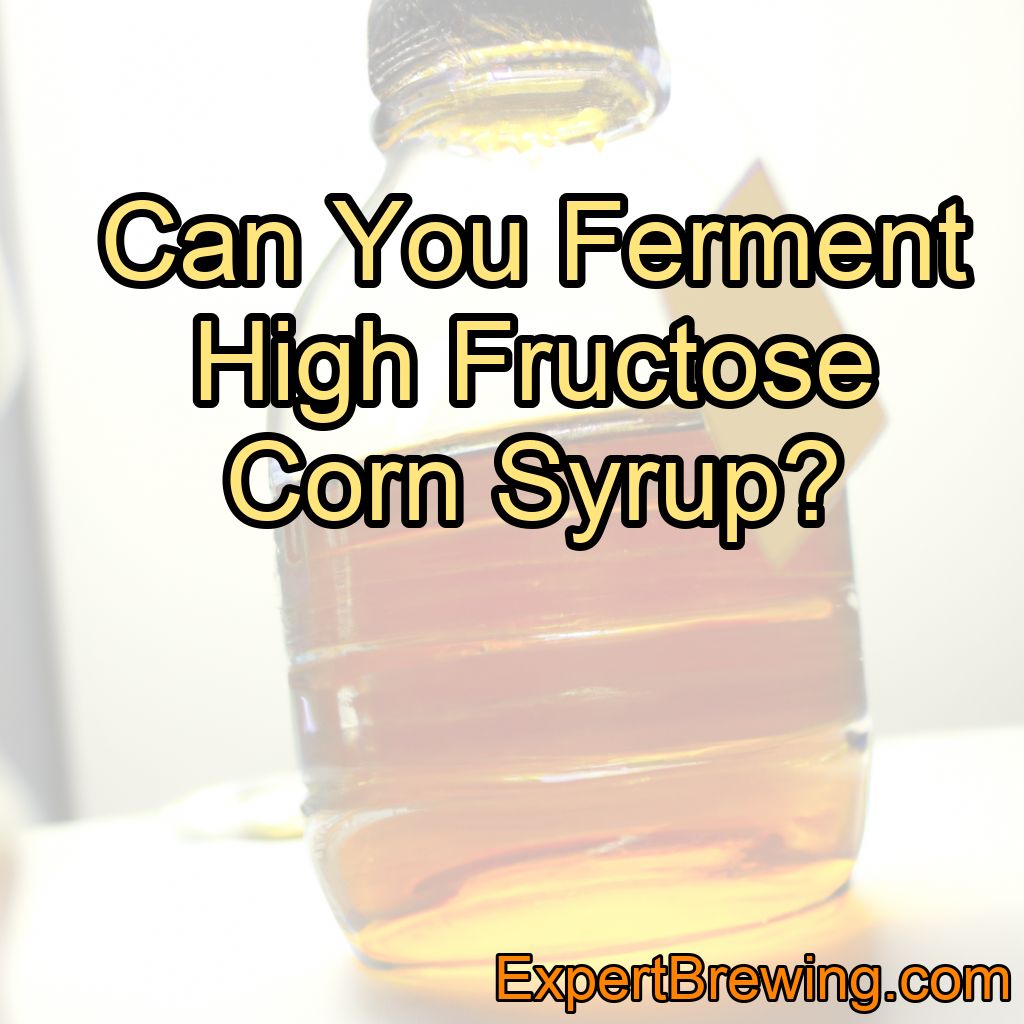As a home brewer, you are always looking for ways to enhance the flavor of your beer, cider or wine. One challenge in brewing is to make a fermented beverage more sweet as sugar is exactly what we feed the yeasts tom make alcohol…
However, one way to make a brew more sweet without further encouraging alcohol production is by using non-fermentable sugars or sweeteners in your brewing process.
Unlike fermentable sugars, which are consumed by yeast to produce alcohol, non-fermentable sugars remain in the beer, adding sweetness, body, and flavor.
But what are some of the best non-fermentable sugars to use in brewing?
That’s what we’ll explore in today’s post.
1. Lactose
First up on our list is lactose, a sugar derived from milk that is commonly used in milk stouts.
Lactose is a great choice for brewers because it adds a creamy sweetness that balances out the bitterness of the hops. Plus, it’s easy to use. Just add it to your wort during the boiling process, and you’re good to go.
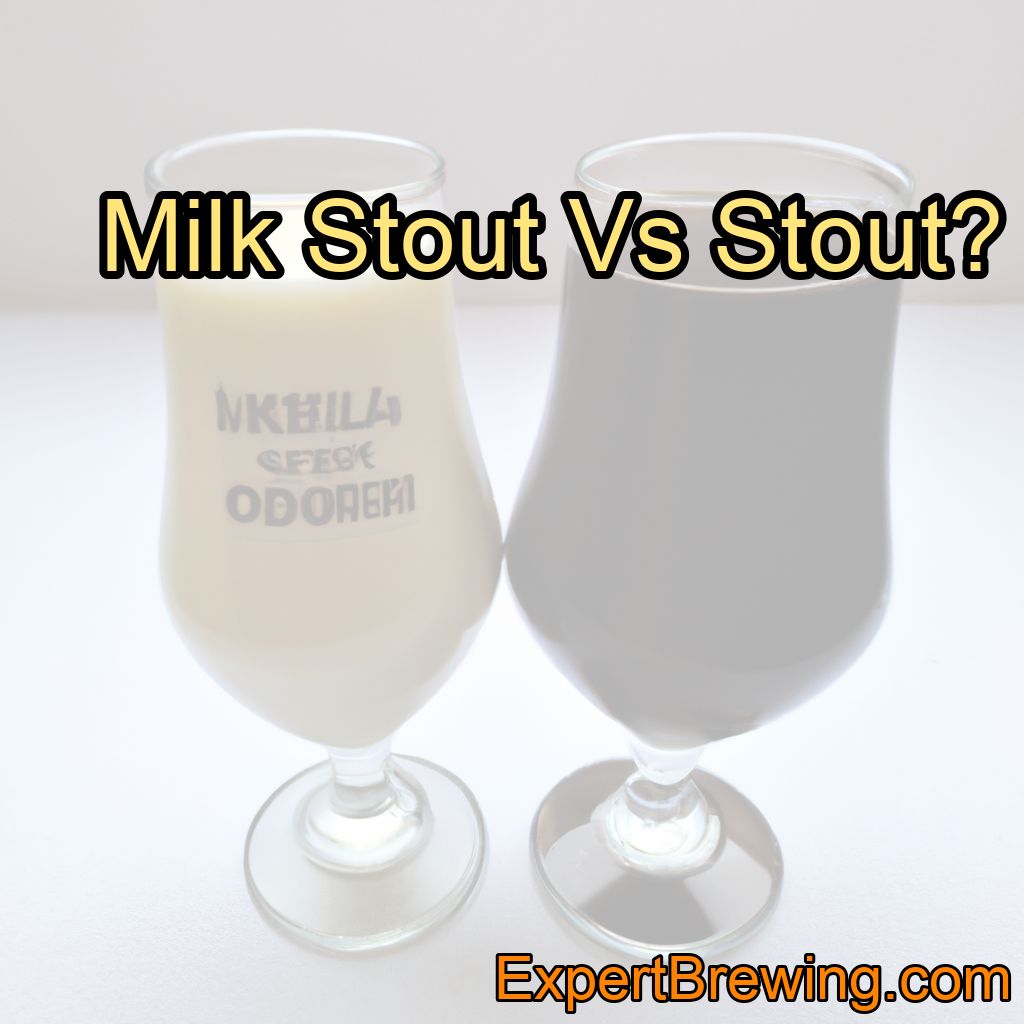
When I first started experimenting with lactose in my brews, I was amazed at how it transformed the taste and texture of my beer. It gave it a rich, velvety mouthfeel that was incredibly satisfying.
2. Maltodextrin
Next up is maltodextrin, a polysaccharide that is produced from starch. Maltodextrin is relatively flavorless but adds body and mouthfeel to your beer.

This makes it an excellent choice for beers that are meant to be light and refreshing, as it won’t overpower the other flavors.
I remember the first time I used maltodextrin in a brew. It was a light, summer ale, and the maltodextrin gave it a wonderful, smooth texture without adding any unnecessary sweetness.
3. Xylitol
Xylitol is a sugar alcohol that is often used as a sweetener in foods and drinks. It has a similar sweetness level to sucrose, but it doesn’t ferment, making it an excellent choice for brewers. Plus, it doesn’t have a bitter aftertaste like some other sugar alcohols.

I’ve found that xylitol works best in darker beers, where the sweetness can balance out the bitterness of the malt. I’ve used it in a few of my porter and stout recipes, and it’s always been a hit.
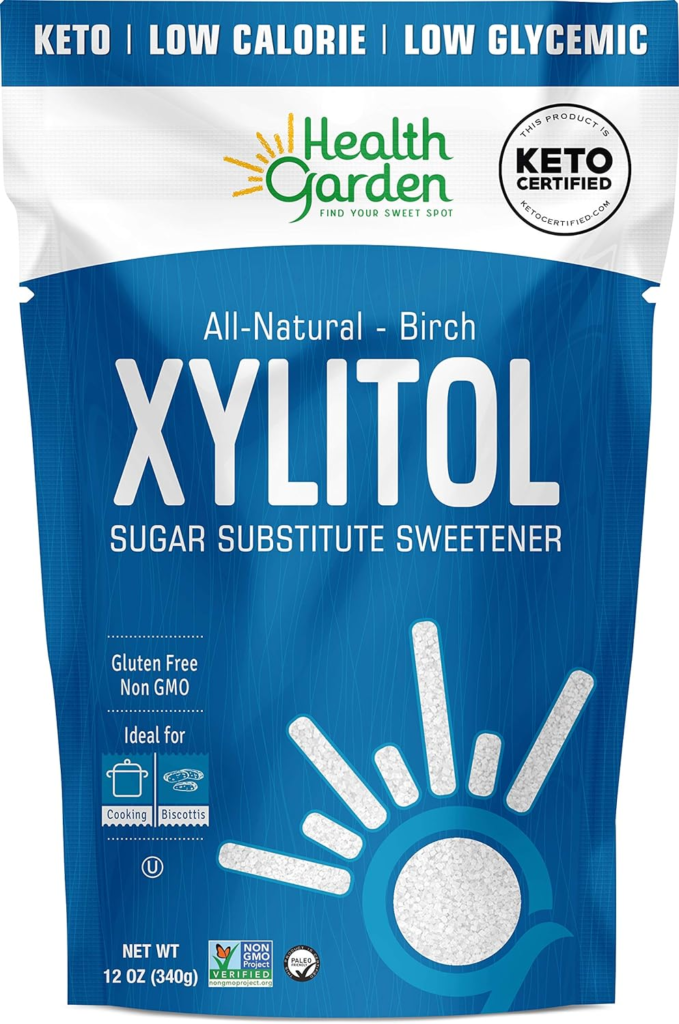
I also think it works really well in ciders as xylitol has little to no “artificial” taste. In fact, xylitol is found naturally in fruits and I have made pear cider with a natural xylitol content of up to 7%!
4. Sorbitol
Another sugar alcohol that is worth considering is sorbitol. Sorbitol is about 60% as sweet as sucrose and adds a pleasant, subtle sweetness to your beer. It also contributes to a smooth, creamy mouthfeel.

In my experience, sorbitol is versatile and can be used in various beer styles. I’ve particularly enjoyed using it in my amber ales and brown ales, where it enhances the malt’s natural sweetness.
5. Erythritol
Erythritol is a sugar alcohol that is about 70% as sweet as sugar but has almost no calories. It’s a great choice if you want to add sweetness to your beer without adding too many extra calories.

I’ve found that erythritol works well in fruit beers, where it enhances the natural sweetness of the fruit without making the beer too sweet or cloying.
6. Isomalt
Isomalt is a sugar substitute that is about half as sweet as sugar and is often used in sugar-free candies and chocolates. It adds a subtle sweetness to your beer and contributes to a full, satisfying mouthfeel.

I’ve used isomalt in several of my stout and porter recipes, and I’ve always been pleased with the results. It adds just the right amount of sweetness without overpowering the other flavors.
7. Mannitol
Finally, we have mannitol, another sugar alcohol that is about half as sweet as sucrose. Mannitol adds a gentle sweetness to your beer and contributes to a smooth, creamy mouthfeel.
In my brewing experience, mannitol works best in lighter beers, where its subtle sweetness and smooth texture can really shine.
8. Monk fruit sweetener
There are many so called “natural” non-sugar sweeteners showing up in the health food industry. One such sweetener that has caught the attention of many, particularly those looking for non-fermentable sweetener options, is monk fruit sweetener.
Origin and Composition
Monk fruit, also known as Luo Han Guo or Siraitia grosvenorii, is a small, round fruit native to southern China and northern Thailand.
For centuries, it’s been used in traditional medicine and as a natural sweetener. Monk fruit sweetener is made by extracting the mogrosides, which are the sweet compounds, from the fruit’s flesh. The result is a sweetener that is up to 200 times sweeter than sugar, yet contains zero calories and has a zero glycemic index.

Non-Fermentability
A key feature of monk fruit sweetener in brewing is its non-fermentable nature. Yeasts, which are integral to the fermentation process, feed on sugars to produce alcohol. However, the mogrosides in monk fruit are not recognized as food by these yeasts, so they remain unaffected during fermentation.
This means that if a brewer is looking to add sweetness without increasing the alcohol content or without the risk of over-carbonation in bottle-conditioned brews, monk fruit sweetener is an excellent choice.
Flavor Profile
While monk fruit sweetener is intensely sweet, it doesn’t carry the same flavor as cane sugar. Some users describe its sweetness as having a slight fruity or caramel-like undertone, which can complement certain beverages, especially fruity brews, ciders, or certain styles of beer. However, given its potent sweetness, it’s crucial to use it judiciously to avoid overwhelming the brew’s intended flavor.
Benefits in Brewing
- Stable Sweetness: Since monk fruit sweetener doesn’t ferment, the level of sweetness you introduce remains consistent throughout the brewing process.
- Caloric Reduction: For those brewing low-calorie beverages, monk fruit offers sweetness without adding calories.
- Safe for Diabetics: Given its zero glycemic index, beverages sweetened with monk fruit can be a good option for those watching their sugar intake, including diabetics.
Usage Tips
When using monk fruit sweetener in brewing:
- Start with a smaller amount and adjust based on taste.
- Consider the other ingredients in your brew to ensure flavor compatibility.
- Remember that while it doesn’t contribute to fermentation, it can influence mouthfeel and overall perception of the drink.
Conclusion
Monk fruit sweetener is a game-changer in the brewing industry, particularly for those seeking non-fermentable options. Its unique flavor profile, coupled with its non-fermentability, opens up a world of possibilities for crafting distinct and innovative brews. Like any ingredient, the key is to experiment and find the right balance to achieve the desired flavor and sweetness. Cheers to exploration and innovation in brewing!
9. Sucralose
Sucralose is a popular artificial sweetener that is around 600 times sweeter than sucrose (table sugar) but contains negligible calories. It is often used as a sugar substitute in various food and beverage products, including soft drinks, baked goods, and desserts.
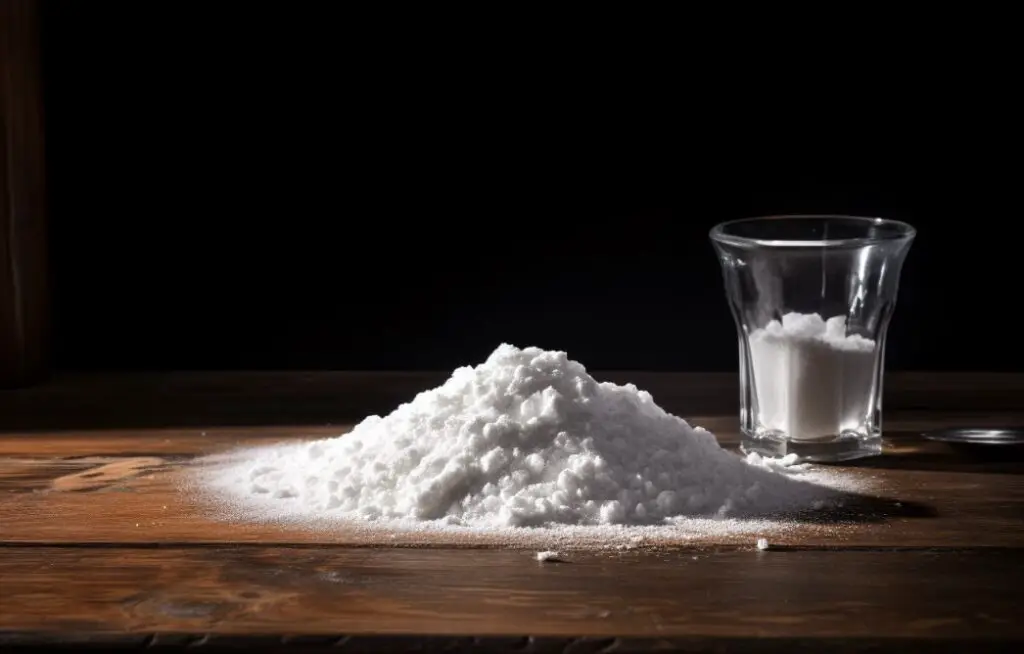
Due to its intense sweetness, only a very small amount of sucralose is needed to achieve the desired level of sweetness, making it a cost-effective option for manufacturers looking to reduce sugar content without sacrificing taste.
In the context of brewing, sucralose can indeed be used as a non-fermentable sweetener. One of the challenges in brewing is achieving the right level of sweetness without adding fermentable sugars that yeast can convert into alcohol during the fermentation process.

This is particularly important in styles of beer where residual sweetness is desired, such as certain types of stouts, porters, and some fruit beers.
Sucralose’s non-fermentable nature makes it a suitable candidate for achieving this goal. Brewers can add sucralose to the beer after the primary fermentation is complete, ensuring that the sweetness remains stable and doesn’t get consumed by yeast during subsequent fermentation phases. This enables the brewer to control the sweetness level of the final product with precision.
When using sucralose in brewing, it’s crucial to consider a few factors:
- Dosage: Sucralose is significantly sweeter than sugar, so only a small amount is required to achieve the desired level of sweetness. Overuse can lead to an overpowering sweetness and off-flavors.
- Blending: Some brewers might choose to blend sucralose with other sweeteners or sugar substitutes to achieve a more balanced flavor profile, as excessive use of sucralose alone can sometimes lead to a metallic aftertaste.
- Testing: It’s important to conduct taste tests and trials when incorporating sucralose into brewing recipes. The sweetness perception can vary among individuals, and finding the right balance for a specific beer style is essential.
- Labeling and Transparency: If you’re planning to commercialize a beer that uses sucralose, make sure to follow labeling regulations and inform consumers about the use of artificial sweeteners.
- Stability: Sucralose is generally stable under normal brewing and storage conditions. However, some experimentation and testing might be needed to ensure its stability over longer periods.
As with any ingredient in brewing, the use of sucralose should be approached with creativity, experimentation, and a commitment to maintaining the overall quality and integrity of the final product.
10. Aspartame
Aspartame is one of the most widely recognized artificial sweeteners globally, often found in diet sodas, sugar-free gums, and other low-calorie foods and drinks. When considering its role in brewing, it’s crucial to highlight its non-fermentable nature, which means yeast cannot break it down during the fermentation process.
Chemical Structure and Sweetening Power:
Aspartame is a dipeptide molecule derived from the amino acids aspartic acid and phenylalanine. It’s approximately 200 times sweeter than sucrose (table sugar), so only small amounts are needed to achieve the desired sweetness.

Advantages in Brewing:
- Stability: Aspartame’s non-fermentable nature ensures that its sweetness level remains consistent throughout the fermentation process. This can be beneficial for brewers who want to maintain a specific sweetness profile without the risk of it being altered by yeast activity.
- Calorie Reduction: As aspartame is calorie-free, it can be used to create low-calorie or light beer options without sacrificing sweetness.
Considerations in Brewing:
- Heat Sensitivity: Aspartame can break down and lose its sweetness at high temperatures. If you’re brewing at elevated temperatures or subjecting the brew to prolonged heating, consider this factor.
- Taste Profile: Like all sweeteners, aspartame has a unique taste. Some individuals detect a slight aftertaste, while others find it indistinguishable from sugar. It’s important to do taste tests before deciding on the right amount to use in your brew.
- Phenylketonuria (PKU) Concern: Aspartame contains phenylalanine, which can be harmful to individuals with PKU, a rare genetic disorder. Any product containing aspartame should be labeled accordingly to warn those with PKU.
Using Aspartame in Brewing:
When using aspartame in brewing, start with small amounts, considering its intense sweetness. It’s often best added post-fermentation to achieve a controlled sweetness level. Ensure you mix it thoroughly and taste-test your brew to determine if adjustments are needed.
In conclusion, aspartame can be a valuable tool in a brewer’s arsenal when seeking a non-fermentable sweetener option. As with any ingredient, understanding its properties and potential impacts on the final product is essential to achieving the desired result.
11. Stevia – straight from nature
Stevia is a natural sweetener derived from the leaves of the Stevia rebaudiana plant, native to South America.
Over the past few years, stevia has gained immense popularity in the culinary world, not just as a sugar substitute in everyday cooking and baking but also in the brewing industry.
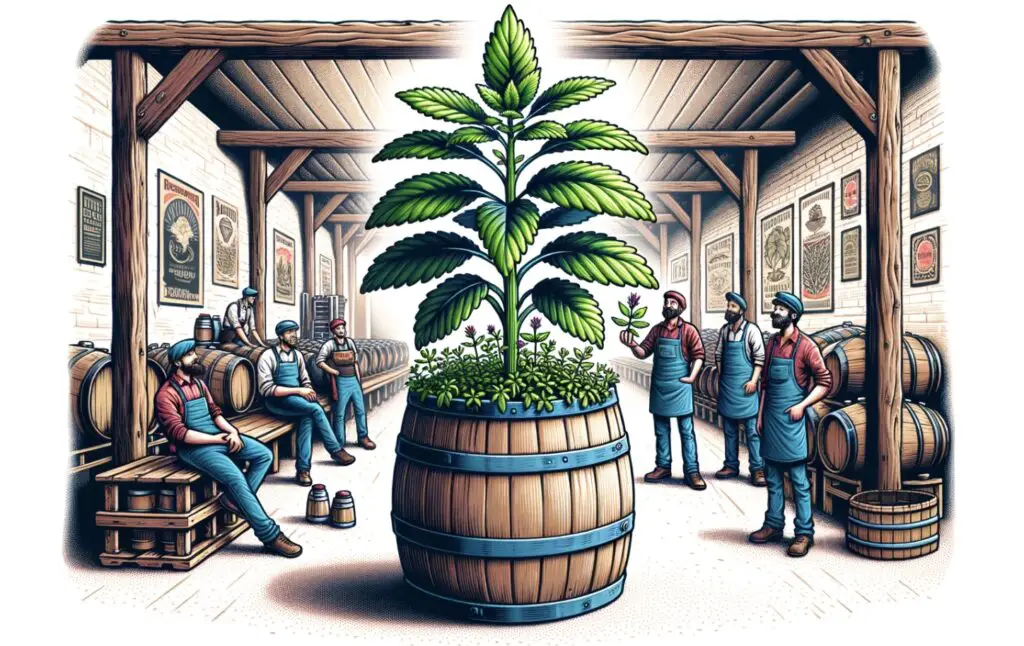
When it comes to brewing, whether it’s beer, cider, or any other fermented beverage, the choice of sweetener can have a significant impact on the final product. Here’s a closer look at why stevia makes a great choice as a non-fermentable sweetener in brewing:
- Non-Fermentable Nature: The primary reason brewers are interested in stevia is due to its non-fermentable nature. Yeasts, which are responsible for fermentation, cannot metabolize the glycosides in stevia, so they remain unchanged throughout the brewing process. This means that when you add stevia to your brew, you can be confident that its sweetness will remain intact without contributing to additional alcohol content.
- Natural Origin: For those who prioritize natural ingredients, stevia offers an excellent option. It’s calorie-free, plant-based, and doesn’t involve synthetic processes in its production.
- Stability: Stevia is heat stable, pH stable, and shelf-stable, making it suitable for various stages of the brewing process. Whether you’re boiling wort or adding it post-fermentation for back-sweetening, stevia retains its sweetening power.
- Flavor Profile: Stevia is considerably sweeter than sugar, so a little goes a long way. However, some users note a slightly licorice or metallic aftertaste at high concentrations. It’s essential to find the right balance to achieve the desired sweetness without any off-flavors. Several stevia products on the market aim to minimize the aftertaste, so experimenting with different brands might be beneficial.
- Versatility: Available in liquid, powder, and granulated forms, brewers can choose the most suitable format for their brewing needs. The powdered form is often more concentrated, while liquid extracts can be more easily adjusted to achieve the desired sweetness level.
- Health Benefits: For consumers who are health-conscious, stevia provides a way to enjoy sweetened beverages without added calories or a spike in blood sugar levels. This can be an attractive selling point for commercial brewers targeting a health-conscious market.
Usage Tips:
- Start with small quantities: Due to its high sweetness potency, it’s advisable to add stevia gradually, taste-testing along the way.
- Consider combining with other sweeteners: Sometimes, a blend of sweeteners can help achieve a more rounded flavor profile, minimizing the potential aftertaste of stevia.
In conclusion, stevia is a versatile and valuable tool in a brewer’s kit. Its non-fermentable nature, combined with its natural origins and health benefits, makes it an excellent choice for those seeking to brew beverages with a touch of sweetness without the added alcohol or calories.
Whether you’re a homebrew enthusiast or a commercial brewer, stevia offers an exciting avenue to explore in the realm of non-fermentable sweeteners.
12. Inulin – the prebiotic sweetener
Inulin, a type of prebiotic fiber found in many plants, is often considered as a potential sweetener due to its slightly sweet taste and a good effect on the mouthfeel. However, its application in brewing is limited due to its low sweetness.
Using Inulin as a Sweetener in Brewing
- Sweetness and Taste:
- Inulin has a mildly sweet taste, about 10-20% as sweet as sucrose (table sugar). This means it can contribute a subtle sweetness to the brew but won’t significantly sweeten the final product.
- Impact on Yeast Fermentation:
- Yeast, particularly the common brewing yeast Saccharomyces cerevisiae, cannot digest inulin directly. Inulin is a polysaccharide composed mainly of fructose units, and the yeast lacks the necessary enzymes (inulinase) to break it down into fermentable sugars like glucose or fructose.
- As a result, inulin will remain largely intact during the fermentation process, contributing to the body and mouthfeel of the brew rather than being converted into alcohol.
- Potential Benefits and Uses:
- Body and Mouthfeel: Since inulin is not fermented by the yeast, it can enhance the mouthfeel and add a slight creaminess or thickness to the brew.
- Health Aspects: Inulin is a prebiotic fiber, promoting gut health by fostering beneficial bacteria. This can be an appealing feature for health-conscious consumers.
Practical Considerations
- Inulin Addition: To use inulin in brewing, it can be added during the mashing process or directly into the wort before fermentation. The exact amount would depend on the desired effect on sweetness and mouthfeel.
- Recipe Adjustment: Since inulin does not ferment, adjustments to the recipe might be necessary to achieve the desired alcohol content and flavor profile.
Downsides of Using Inulin in Brewing
- Limited Sweetness Contribution:
- Inulin is only about 10-20% as sweet as sucrose, so its contribution to sweetness is minimal. This means it cannot be relied upon to significantly sweeten the final product.
- Non-Fermentability:
- Since common brewing yeasts cannot ferment inulin, it remains in the brew, potentially leading to residual sugars that may affect the final taste and stability of the product.
- Potential Off-Flavors:
- In some cases, inulin can break down into fructose and other components during prolonged storage or under certain conditions, potentially leading to off-flavors or unwanted sweetness over time.
- Digestive Issues:
- Inulin is a type of fiber that can cause digestive discomfort in some individuals, such as gas, bloating, or diarrhea, especially if consumed in large amounts. This could be a concern for some consumers and may limit the market for inulin-containing beverages.
- Impact on Clarity:
- Inulin may contribute to haze or cloudiness in the finished brew, potentially affecting the visual appeal of the product. This can be a significant downside for beers where clarity is important, such as lagers or certain ales.
- Consistency and Stability:
- Ensuring consistent distribution and stability of inulin in the brew can be challenging. Inulin may settle out of solution over time, leading to variability in mouthfeel and sweetness from one bottle to another.
- Cost:
- Inulin can be relatively expensive compared to traditional brewing sugars. This can increase the overall cost of production, which might not be justified by the benefits it provides.
While inulin can be used in brewing to add a mild sweetness and improve mouthfeel, it will not be fermented by the yeast, meaning it won’t contribute to the alcohol content of the brew.
Brewers looking to experiment with inulin should consider these factors and may need to balance it with other fermentable sugars to achieve the desired results.
Choosing the Right Sweetener for Your Cider
With so many non-fermentable sweeteners to choose from, how do you decide which one is best for your cider? Consider the following factors:
Flavor Profiles of Different Sweeteners
Each sweetener brings its own unique taste to the cider.
Sucralose, for example, provides a sweetness similar to that of sugar without the extra calories. Stevia, on the other hand, has a slightly herbal aftertaste.
I personally think that the sugar alcohols, like xylitol, sorbitol and erythritol, give the most “natural” taste to wines and ciders, whereas stevia does fine in a dark stout or brown ale due to its natural hint of liquorice.
Experiment with different sweeteners to find the flavor profile that complements your cider best.
Health Considerations of Various Sweeteners
If you are conscious of your calorie intake or have specific dietary restrictions, consider the health implications of the sweetener you choose. Artificial sweeteners are typically low in calories, while other more natural options like lactose and erythritol may be more suitable for those seeking a natural alternative at the cost of a few calories.
It’s important to note that some sweeteners may have some higher glycemic index, which can affect blood sugar levels. For individuals with diabetes or those following a low-sugar diet, it may be beneficial to opt for sweeteners like monk fruit extract or stevia, which have minimal impact on blood sugar levels.
When considering health considerations, it’s also important to be aware of any potential allergies or sensitivities. Some sweeteners, such as xylitol or sorbitol, may cause digestive issues in certain individuals. Always read labels and consult with a healthcare professional if you have any concerns or specific dietary needs.
How to Use Non-Fermentable Sweeteners in Cider
Now that you have selected the perfect non-fermentable sweetener for your cider, it’s time to learn how to incorporate it effectively.
Using non-fermentable sweeteners in cider can be a great way to add sweetness without affecting the fermentation process.
However, it’s important to understand the timing and quantity of sweetener addition, as well as the mixing and dissolving techniques, to ensure a well-balanced and delicious final product.
Timing and Quantity of Sweetener Addition
When using non-fermentable sweeteners, timing is crucial. It is recommended to add the sweetener after fermentation is complete to avoid any interference with the fermentation process. This allows the yeast to fully consume the fermentable sugars and produce alcohol before introducing the non-fermentable sweetener.
Start with a small quantity of sweetener and taste the cider regularly until the desired sweetness is achieved. It’s important to remember that the sweetness level can vary depending on personal preference, so it’s best to start with a conservative amount and adjust accordingly.
By adding the sweetener after fermentation, you have more control over the final sweetness of your cider. This method allows you to tailor the sweetness to your liking without the risk of over-sweetening or affecting the fermentation process.
Mixing and Dissolving Techniques
To ensure that the sweetener is evenly distributed throughout the cider, it is important to mix it thoroughly. Simply adding the sweetener to the cider without proper mixing can result in clumps or uneven distribution of sweetness.
A recommended technique is to dissolve the sweetener in a small amount of cider or water before adding it to the rest of the batch. This helps to prevent clumping and ensures that the sweetener is evenly dispersed. You can use a whisk or a spoon to stir the sweetener into the liquid until it is fully dissolved.
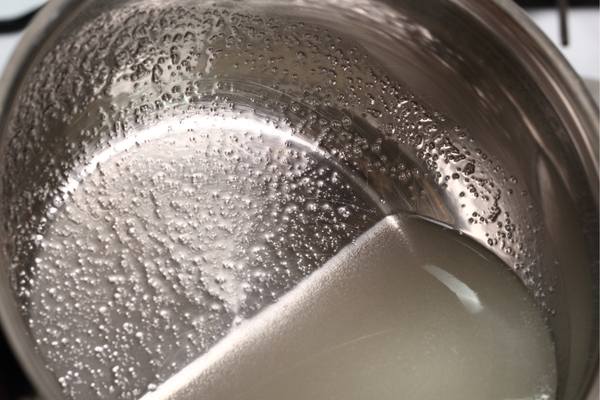
Once the sweetener is dissolved, you can add it to the rest of the cider batch. It’s important to mix the cider well after adding the sweetener to ensure that it is evenly distributed.
Gently stir the cider in a circular motion, making sure to reach the bottom of the container, to ensure that the sweetener is fully incorporated.
By following these mixing and dissolving techniques, you can achieve a well-balanced and consistent sweetness throughout your cider. This will enhance the overall flavor profile and provide a delightful drinking experience.
Experimenting with different non-fermentable sweeteners and their quantities can be a fun and creative way to customize your cider. Whether you prefer a subtle sweetness or a bolder flavor, the key is to taste and adjust until you find the perfect balance.
Remember, the art of cider-making is all about experimentation and personal preference. So don’t be afraid to try different sweeteners, quantities, and timing to create a cider that suits your taste buds.
Troubleshooting Common Issues
While using non-fermentable sweeteners can greatly enhance the flavor and sweetness of your cider, it’s not uncommon to encounter a few challenges along the way. Here are some common issues and how to address them.
Over-Sweetening and How to Avoid It
It is easy to get carried away with adding sweetener, resulting in an overly sweet cider. To avoid this, always start with a small amount and taste as you go. Remember, you can always add more sweetener if needed, but it’s difficult to remove excess sweetness once it’s added.
When sweetening your cider, it’s important to consider the specific gravity of the sweetener. Different sweeteners have different levels of sweetness, so it’s crucial to understand the conversion rates.
For example, if you are using a liquid sweetener, you may need less compared to a powdered one. It’s always a good idea to consult a cider-making guide or recipe to get an idea of the recommended amount of sweetener for your desired level of sweetness.
Another way to avoid over-sweetening is to experiment with different types of sweeteners. Some sweeteners, like stevia or erythritol, are much sweeter than sugar, so you may need to use less of them. On the other hand, if you prefer a milder sweetness, you can opt for a less intense sweetener like honey or maple syrup.
Dealing with Residual Sweetener Taste
Some sweeteners can leave a lingering aftertaste, which may not be ideal for certain cider styles. If you find that the sweetener you used is overpowering the other flavors, try blending it with another sweetener or diluting the cider with unfermented apple juice.
Blending sweeteners can help balance out the flavors and reduce any unpleasant aftertaste. For example, if you used a non-fermentable sweetener that has a strong aftertaste, you can mix it with a more neutral sweetener like cane sugar or agave syrup. This combination can help mellow out the flavors and create a more harmonious taste profile.
If blending sweeteners doesn’t solve the issue, you can try diluting the cider with unfermented apple juice. This will not only reduce the sweetness but also add more apple flavor to the cider. Start by adding small amounts of apple juice and taste as you go until you achieve the desired balance.
Additionally, consider the fermentation process when dealing with residual sweetener taste. If the cider is still fermenting, the flavors will continue to develop and change over time. Give the cider some extra time to ferment and age, as this can help mellow out any overpowering flavors and create a more well-rounded taste.
Remember, troubleshooting common issues with sweeteners in cider-making is all about experimentation and finding the right balance. Don’t be afraid to try different sweeteners, adjust the amounts, or blend flavors until you achieve the perfect sweetness for your cider.
Conclusion
In conclusion, there are plenty of fantastic non-fermentable sugars out there that you can use to enhance the flavor, sweetness, and body of your beer, cider or mead.
Whether you choose lactose, maltodextrin, xylitol, sorbitol, erythritol, isomalt, or mannitol, you’re sure to create a brew that is unique and delicious.
Here are the top 10 facts about non-fermentable sugars in brewing:
1. Non-fermentable sugars add sweetness, body, and flavor to your beer.
2. They remain in the beer after the brewing process, unlike fermentable sugars.
3. Lactose adds a creamy sweetness that balances out the bitterness of hops.
4. Maltodextrin is flavorless but adds body and mouthfeel to the beer.
5. Xylitol works best in darker beers, where its sweetness can balance out the bitterness of the malt.
6. Sorbitol adds a pleasant, subtle sweetness and contributes to a smooth, creamy mouthfeel.
7. Erythritol enhances the natural sweetness of fruit beers without making them too sweet.
8. Isomalt adds a subtle sweetness and contributes to a full, satisfying mouthfeel.
9. Mannitol adds a gentle sweetness and contributes to a smooth, creamy mouthfeel.
10. Using non-fermentable sugars is an excellent way to experiment with and enhance the flavors in your brews.
FAQs
What are examples of non fermentable sugar?
Examples of non-fermentable sugars include sugar alcohols like erythritol, xylitol, and sorbitol, as well as artificial sweeteners like sucralose, aspartame, and saccharin. These sugars are not metabolized by the bacteria in our mouth or gut, making them non-fermentable and less likely to contribute to tooth decay or increase blood sugar levels.
Is monk fruit a non fermentable sugar?
Yes, monk fruit is a non-fermentable sugar. It contains natural compounds called mogrosides, which are not metabolized by yeast or bacteria during fermentation processes.
What is a non fermenting sugar for wine making?
A non-fermenting sugar for winemaking refers to a sugar that is not converted into alcohol during the fermentation process. This can be achieved by using non-fermentable sugars such as lactose or artificial sweeteners. These sugars are often added after fermentation to sweeten the wine without increasing its alcohol content.
What are the negatives of monk fruit sweetener?
Monk fruit sweetener, also known as Luo Han Guo extract, is generally considered safe and has several benefits. However, there are a few potential negatives to consider. Firstly, monk fruit sweetener can be quite expensive compared to other sweeteners.
Additionally, it may have a slightly bitter aftertaste, especially when used in larger quantities. Some individuals may also experience digestive issues like bloating or diarrhea if consumed in excess.
Lastly, while monk fruit sweetener is considered safe for most people, those with a rare genetic disorder called phenylketonuria (PKU) should avoid it, as it contains a small amount of phenylalanine.
Are all sugars fermentable?
No, not all sugars are fermentable. While many sugars can undergo fermentation, there are certain sugars that cannot be fermented by common microorganisms. For example, sugars like raffinose and stachyose are not easily fermentable by most bacteria and yeasts. Additionally, some sugars like erythritol and xylitol are not fermentable by most microorganisms.


